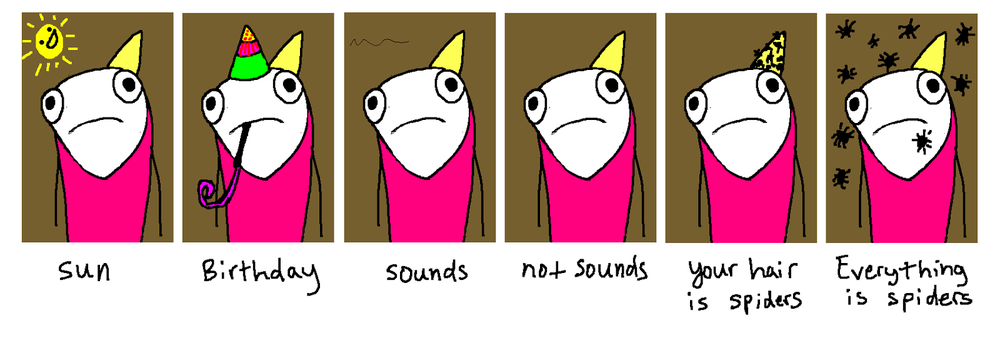When colours fade away
Chanon Wongs atayanont discusses the effects of depression how it feels

This week, let’s move on from anxiety to the more cheerful topic of depression. To the sufferers, it is the worst feeling in the world. But for those who have never experienced it, it is hard to truly understand how unpleasant or disruptive it is, so this article will try to explain how it feels.
First things first, I have to clarify that being depressed is not just being sad.
We use the phrase “I feel depressed” whenever we feel that things aren’t going our way but that is not depression, clinically so. Ask your medic friends who’s done a psych module and they’ll tell you that depression is a mood disorder that disrupts one’s daily life and can be potentially life-threatening.
However, because being sad is similar to being depressed, there’s a lot of misunderstanding that downplays the struggle faced by people with depression. This sentiment can be summed up with the statement: “I’ve felt down before but I can snap out of it, so why can’t they just toughen up?”
What makes low mood different from depression is its duration, intensity and persistence.
Being depressed isn’t just feeling sad or experiencing low self-esteem; it is often accompanied by a sense of hopelessness and the lack of motivation to do anything, even getting out of bed. You can probably see how that can interfere with daily life.
This sense of despair deserves a special mention since it can be difficult to fully grasp. This can range from losing interest and pleasure in what you used to enjoy, to an intensely blank state where everything in the world can be summed up by the phrase, ‘Why do I even bother?’ It’s like you’ve taken a step back from life and become a spectator, watching everything going on but feeling absolutely empty.
Worse, rather than a spectator, you can also become your own malicious critic, sneering at and condescending to everything you do. This is when self-blame and self-hate comes in, which can plunge you even deeper into depression and potentially put you in danger. I’ll elaborate more on this later.
As for duration, depression is chronic. Sufferers can be stuck in that mood for a few weeks or months. Or alternatively, it can last for a few days at a time, but will come back time and time again until you can almost predict when your next episode is going to be.
Depression is also irrational, even if what they’re depressed about can seem perfectly rational to the sufferer. In other words, a phase might come out of nowhere, not always in response to a specific problem. This is what makes it so hard for others to understand why depressed people can’t just “pull themselves together”.
When you’re suffering from a low mood, you tend to feel better by making changes to your life, such as resolving a difficult situation or getting more sleep. It’s not that simple for depressed people because the sufferer often doesn’t feel any better no matter what they do, or they might not even find the motivation to do anything. Most of the time, it simply takes time and support for the sufferer to feel better.
This is why the sufferer often feels helpless and isolated since there is nothing they can do to change how they feel even if they’re desperately trying to ‘get better’.
I’ve once heard this description from a sufferer. He said that it’s like he is drowning in a stormy sea. He tries to swim to the surface and become happy again, but the waves always wash over his head, pushing him back down into dark waters. Eventually, he just gives in and waits for the sea to calm.
I touched earlier on self-blame, and this is where it comes in. Since the sufferer is helpless to make themselves feel better, they often turn to themselves and say “Why aren’t you living your life like everybody else? You don’t even have a reason to be sad!” Sometimes, they are aware that they’re suffering an episode but there’s nothing they can do.
Self-blame can turn into self-hate which can spiral down a dark road very quickly, especially in more severe cases of depression. Fortunately, self-harm and suicidal thoughts are not common with depression, and those are the moments professional help may be needed.
But like most illnesses, recovery is always possible with the right treatment and support. Patient, understanding friends who are willing to bear with the sufferer through the episodes is as helpful as any professional help.
Depressed people tend to avoid friends and relatives. Even when approached, they can be irritable, gloomy and difficult. But you can show that you care by listening, appreciating them or just spending time with them. By doing so, even though they don’t show it at the time, you are already helping immensely and they would say so once the episode is over.
As for actively helping them, you must be prepared to accept that sometimes, you can’t in the same way you’d approach your own problems. Instead, it might be best to encourage them to talk about their feelings and get them to work out what they think is most likely to make them feel better.
If, though, you feel that you are at a loss of what to do or you feel that your friend is at risk of hurt themselves, the numbers provided in the column beside are there to help you as well as the sufferers. And I hope this article helps you understand this crippling disorder a bit better.





